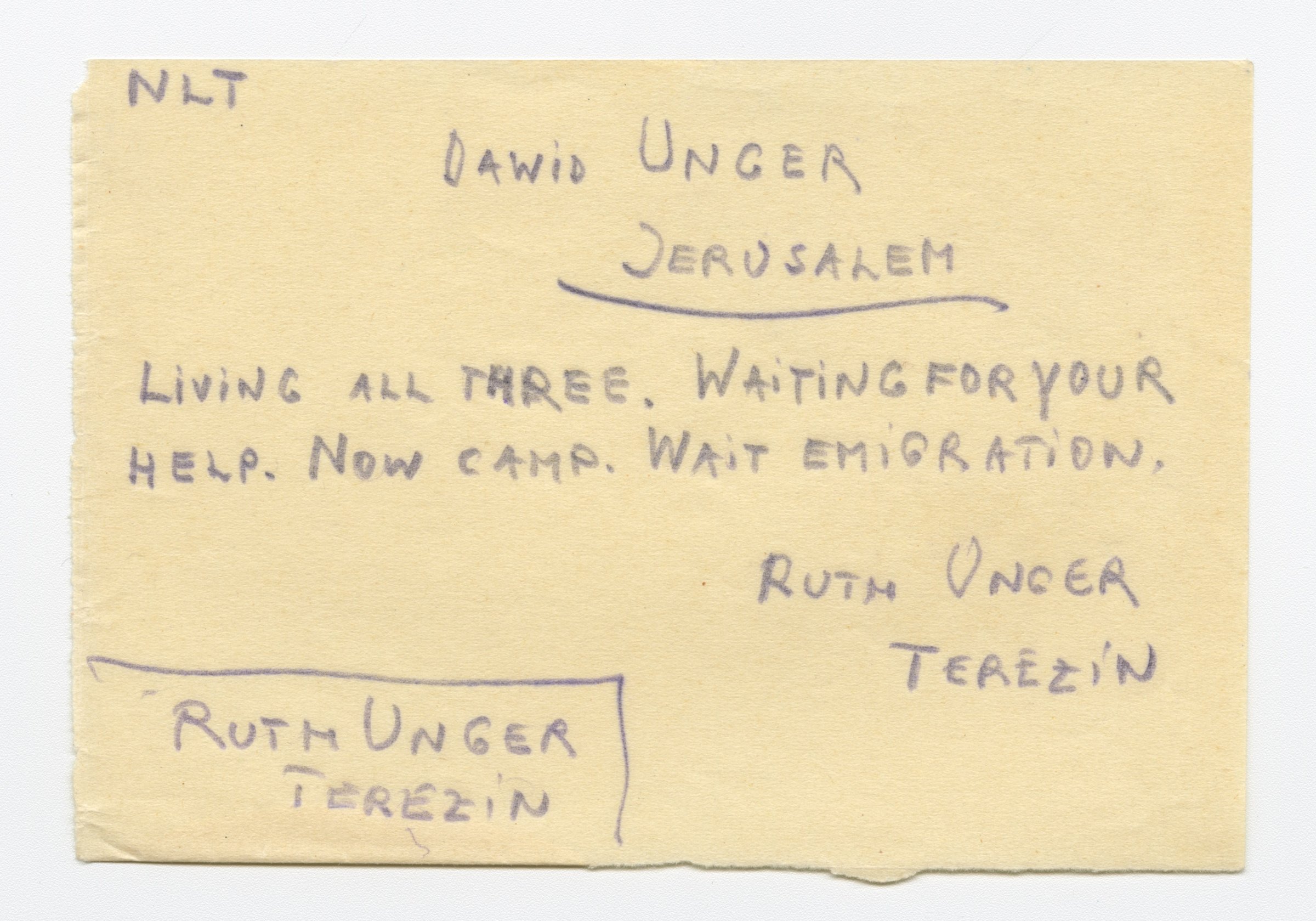
Among this year’s many 70th anniversary milestones marking the end of World War II is the start of the Nuremberg Trials, which began on Nov. 20, 1945 as a score of Nazi leaders faced judgment for war crimes. To many at the trials, TIME reported, it seemed to be “Civilization itself which stood at the prosecutor’s rostrum, resonantly accusing the 20 Germans in the dock of vile assault & battery on all mankind.”
A small measure of the horror inflicted by the Nazis can be seen in these telegram drafts. For many survivors of Nazi brutality, liberation meant a return to a confusing world that had lost the people and places that had made it once home. Written by Holocaust survivors seeking assistance or information during that period, these missives offer a close-up look at the reality of life after war.
The longhand notes would have been typed out by a telegraph service, usually something set up by the Allies involved in their liberation or by a Jewish aid group. They are part of the collection of Leo Baeck Institute, and according to the Center for Jewish History the rabbi and scholar took them with him when he left the Theresienstadt concentration camp to join his daughter in England.
After the War: Recovery, Relief, and Return, 1945–1949 is on view at the Center for Jewish History in New York City through Jan. 15, 2016. The Center’s digital collections are viewable online.
Read TIME’s 1945 coverage of the Nuremberg Trials, here in the TIME Vault: The Fallen Eagles
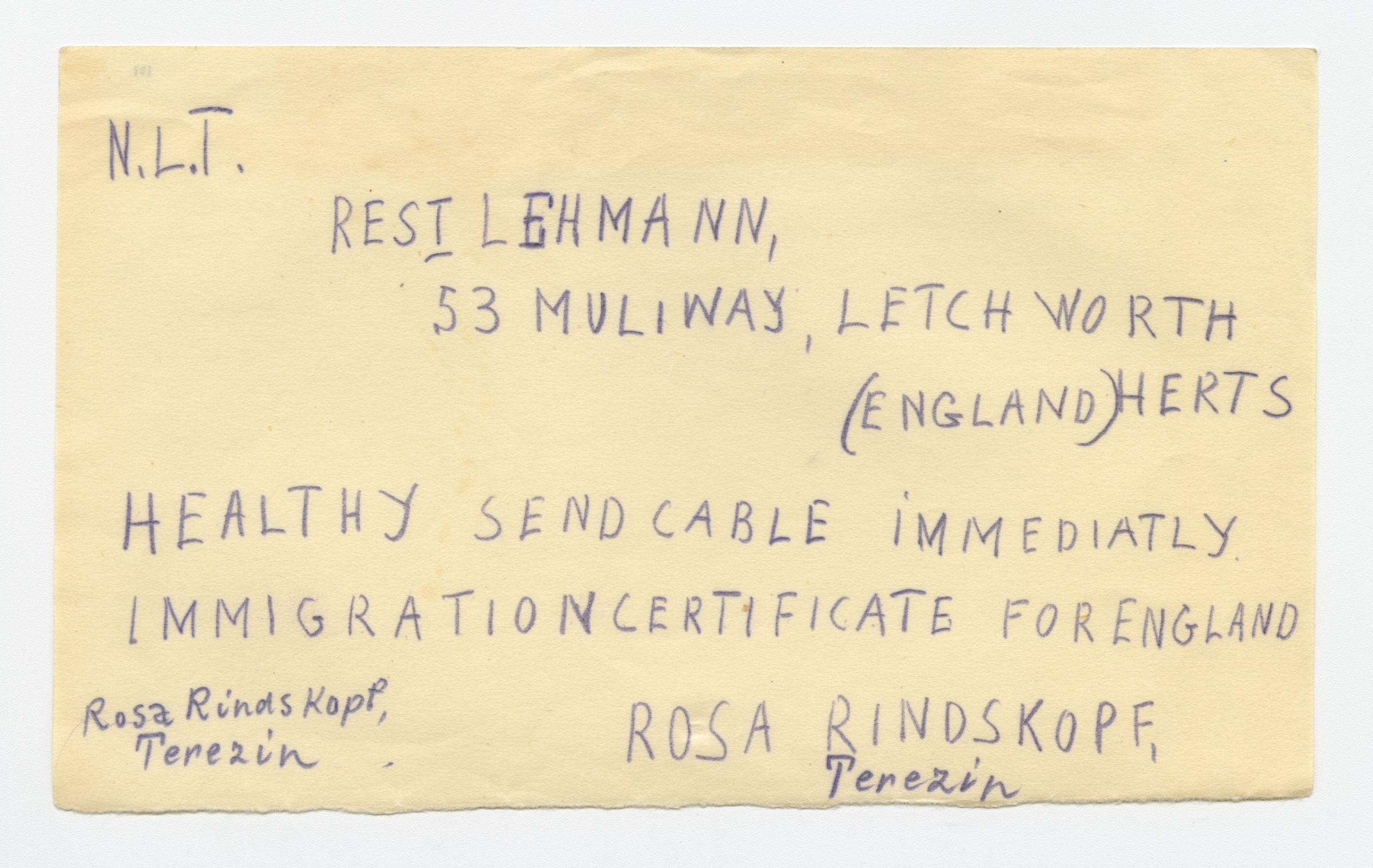
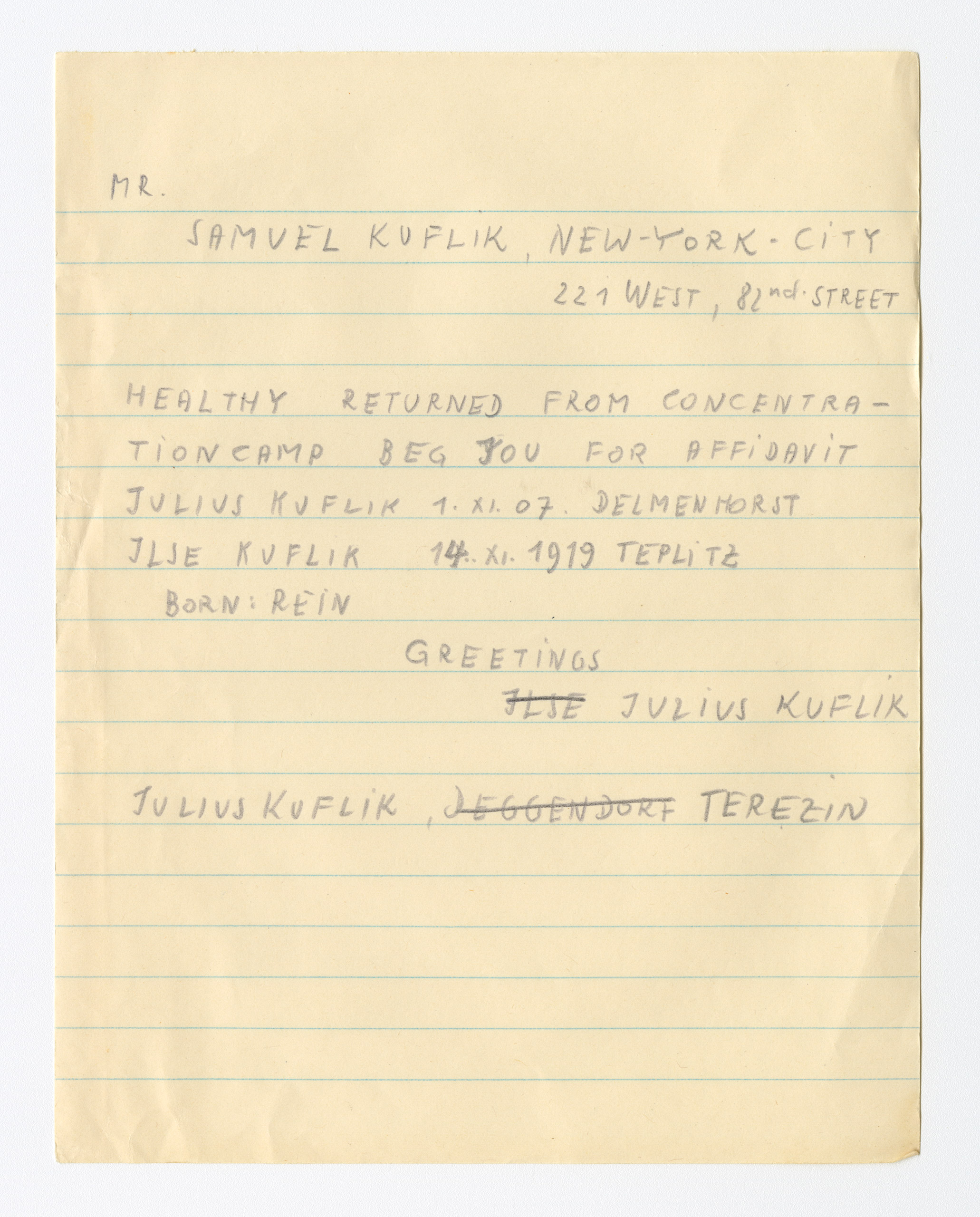
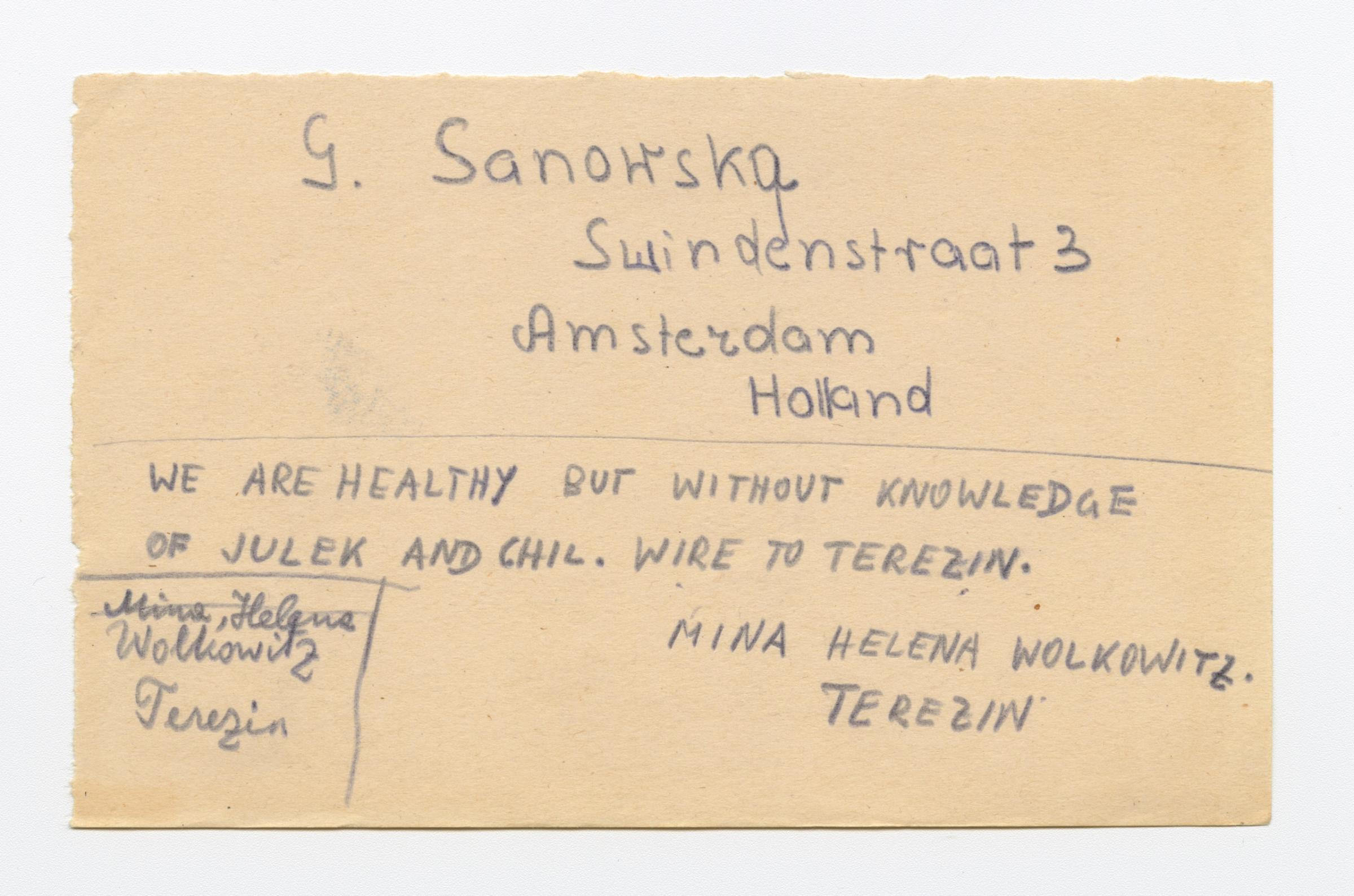
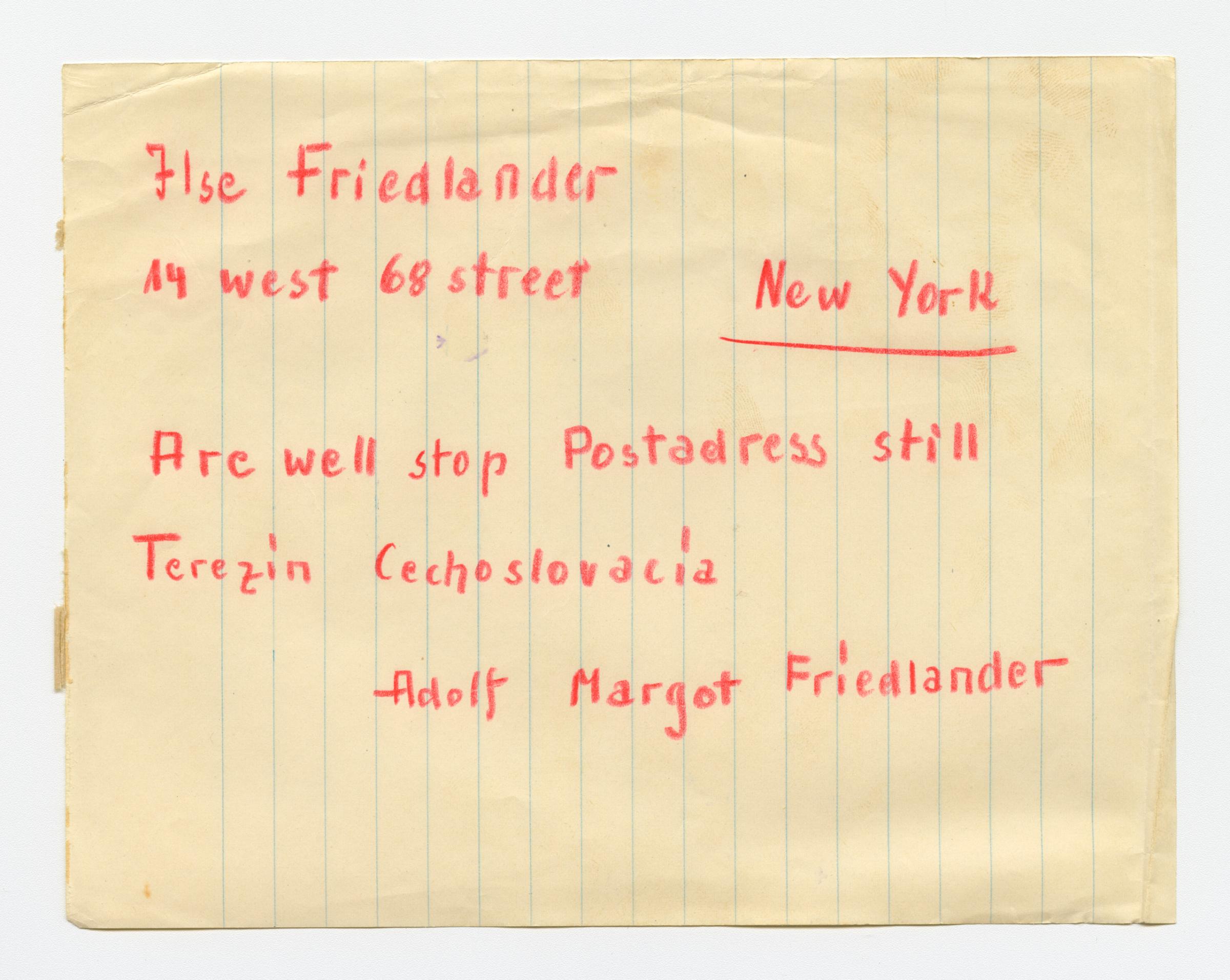
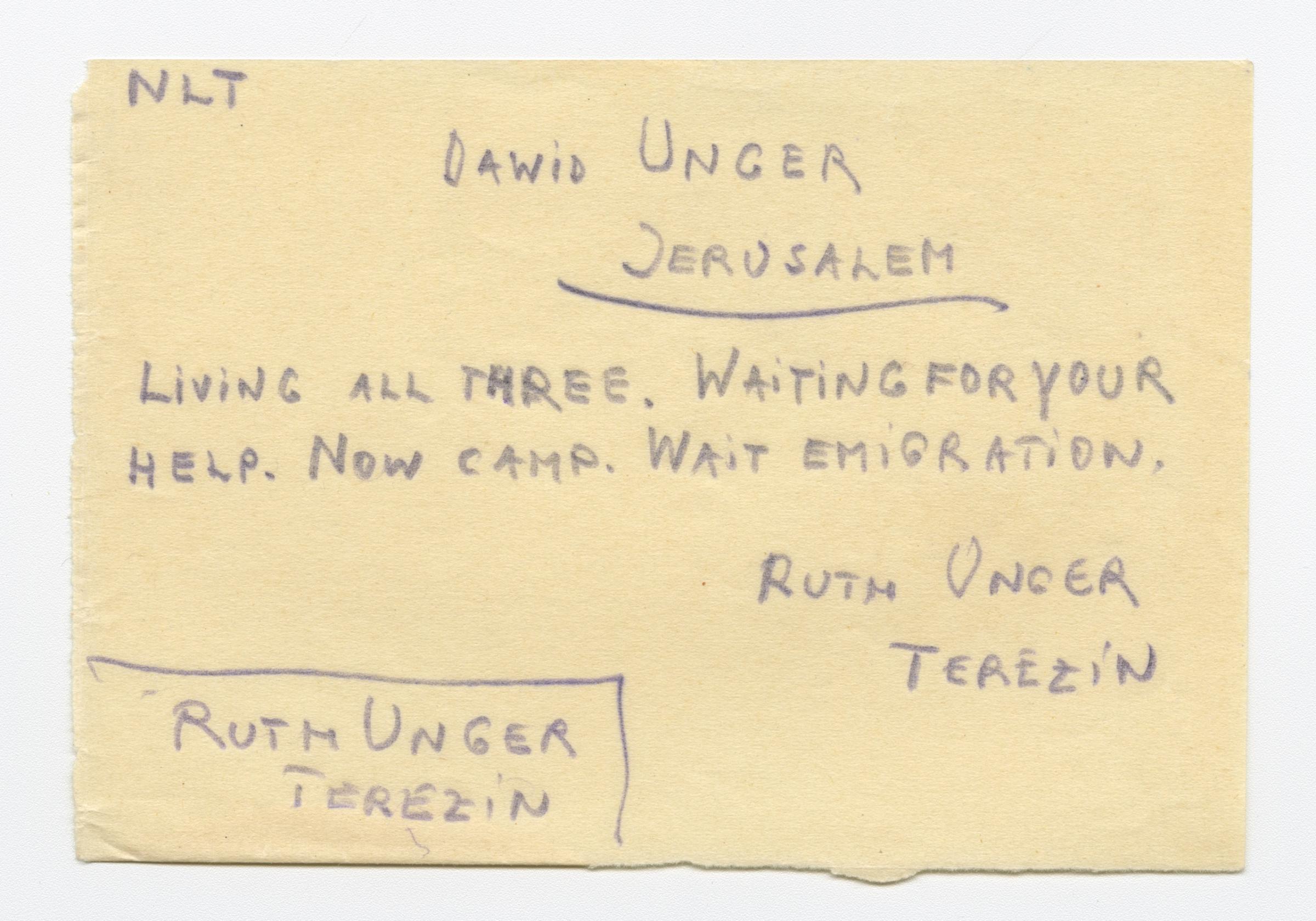
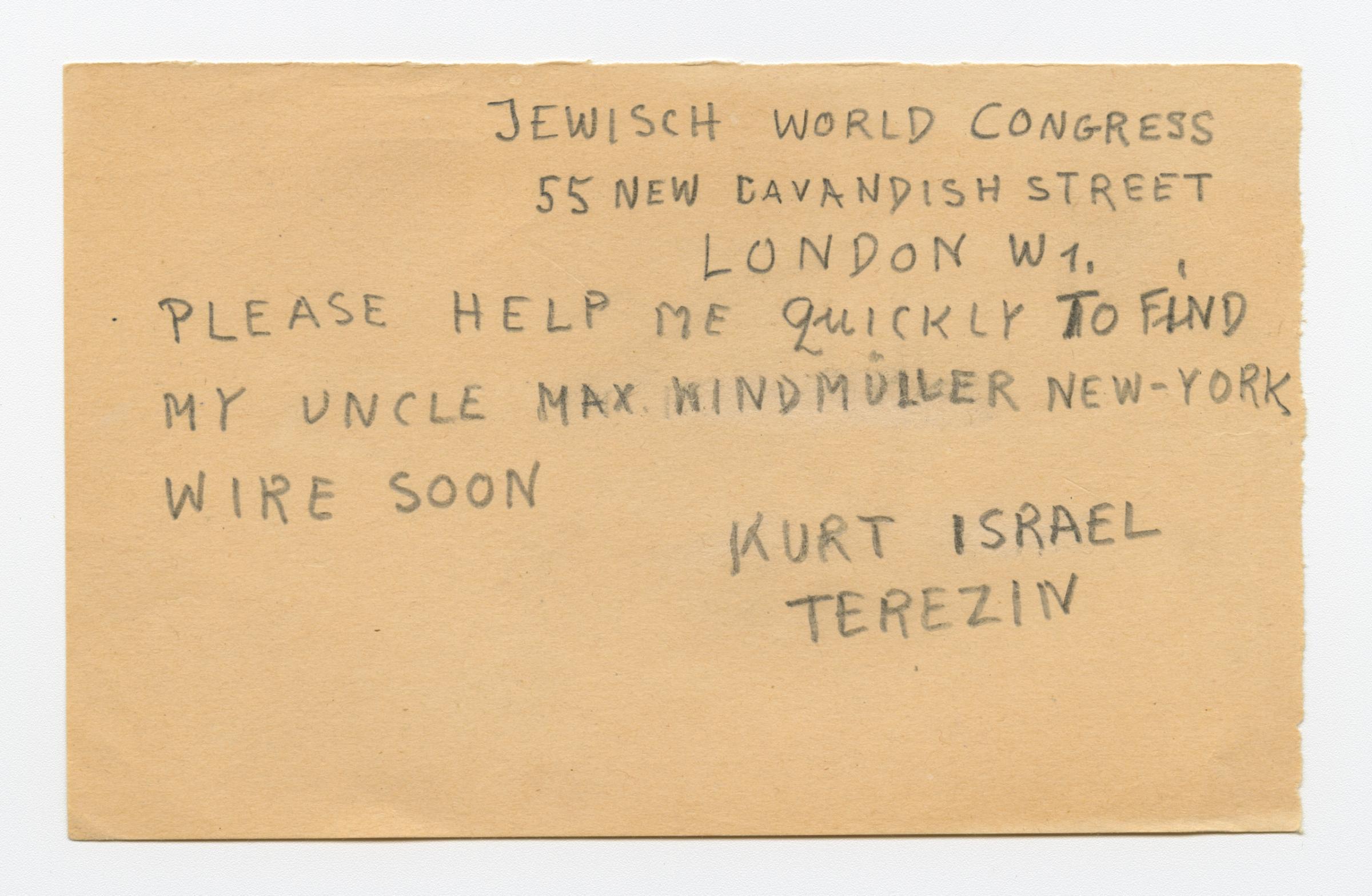
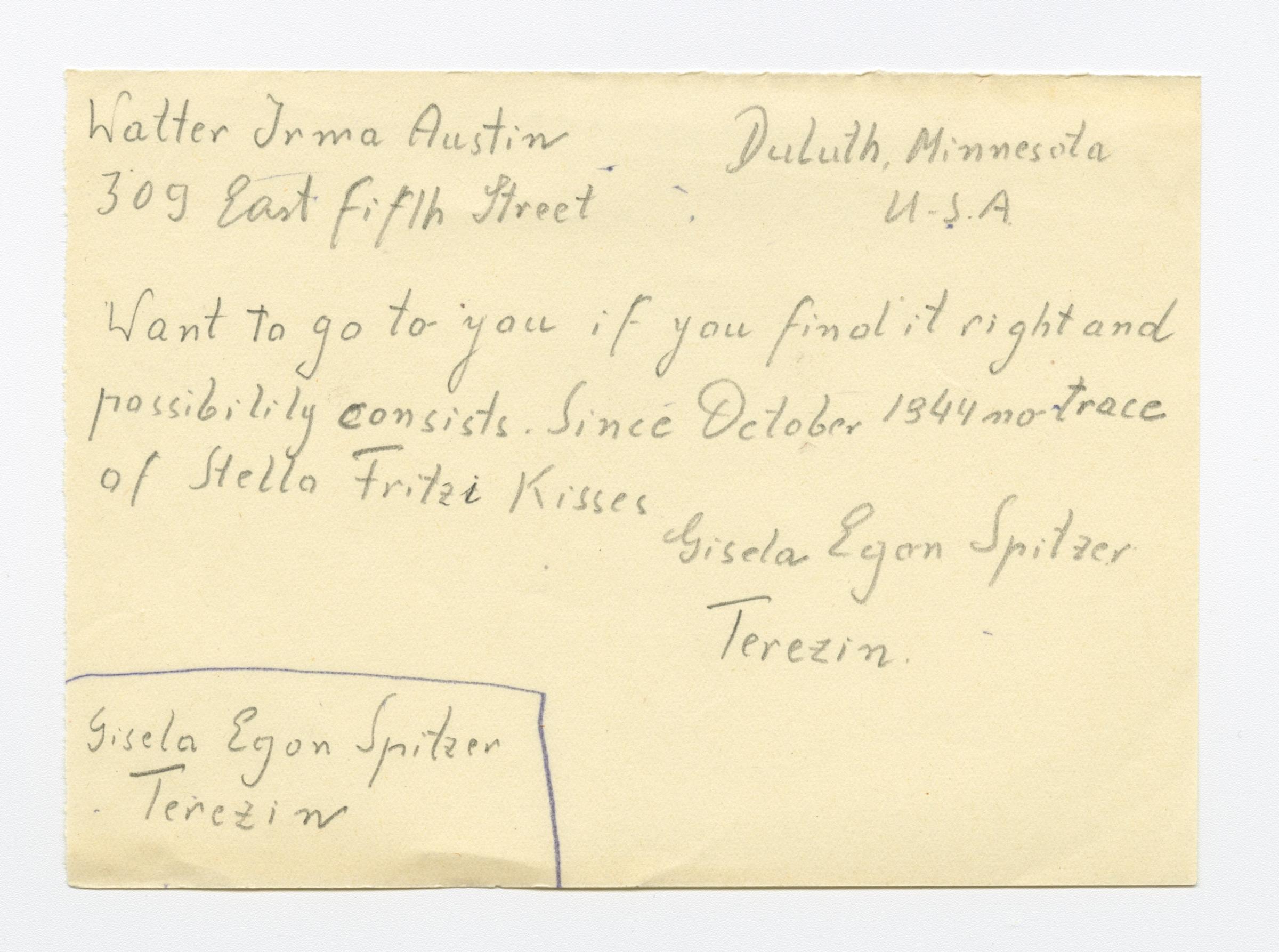
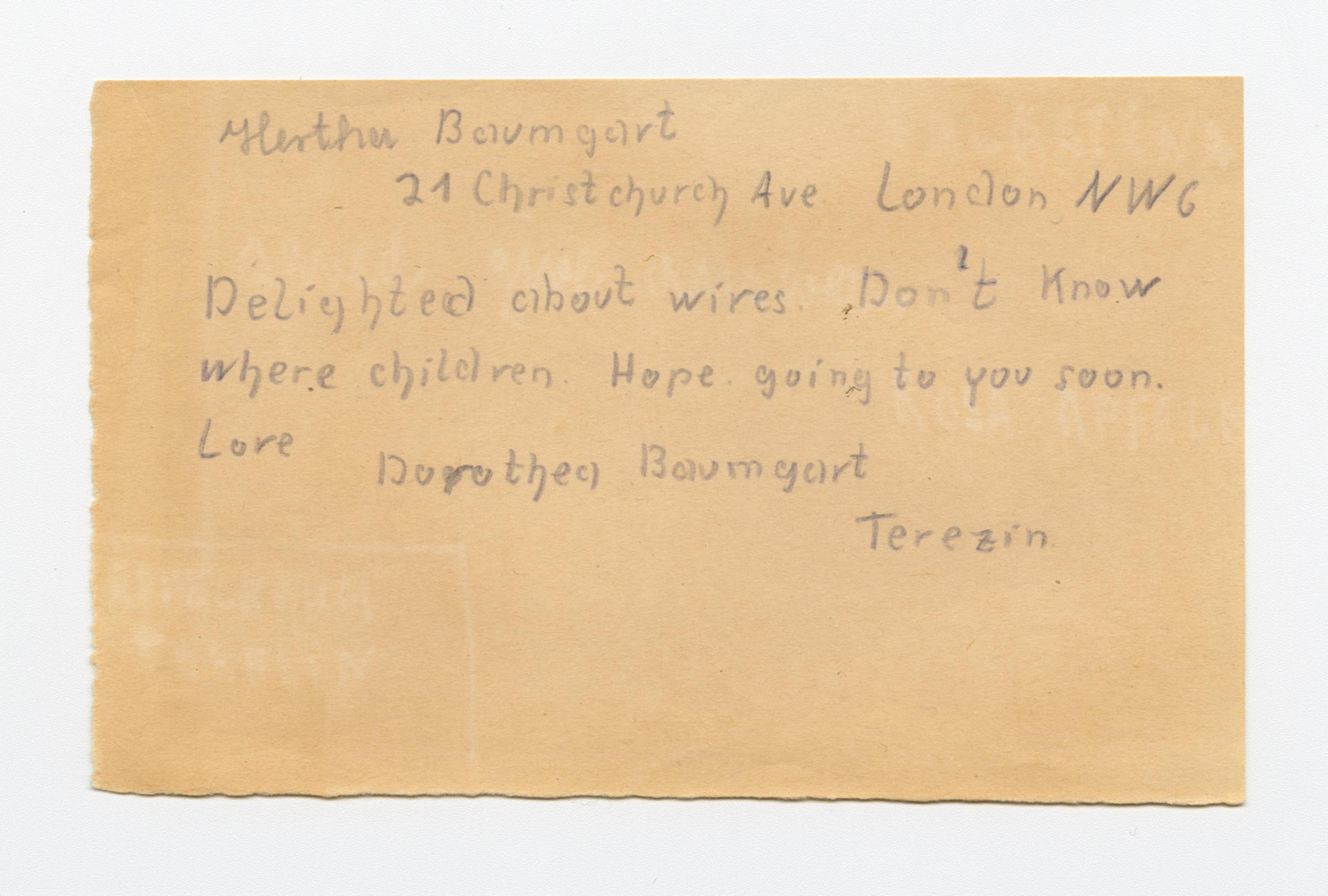

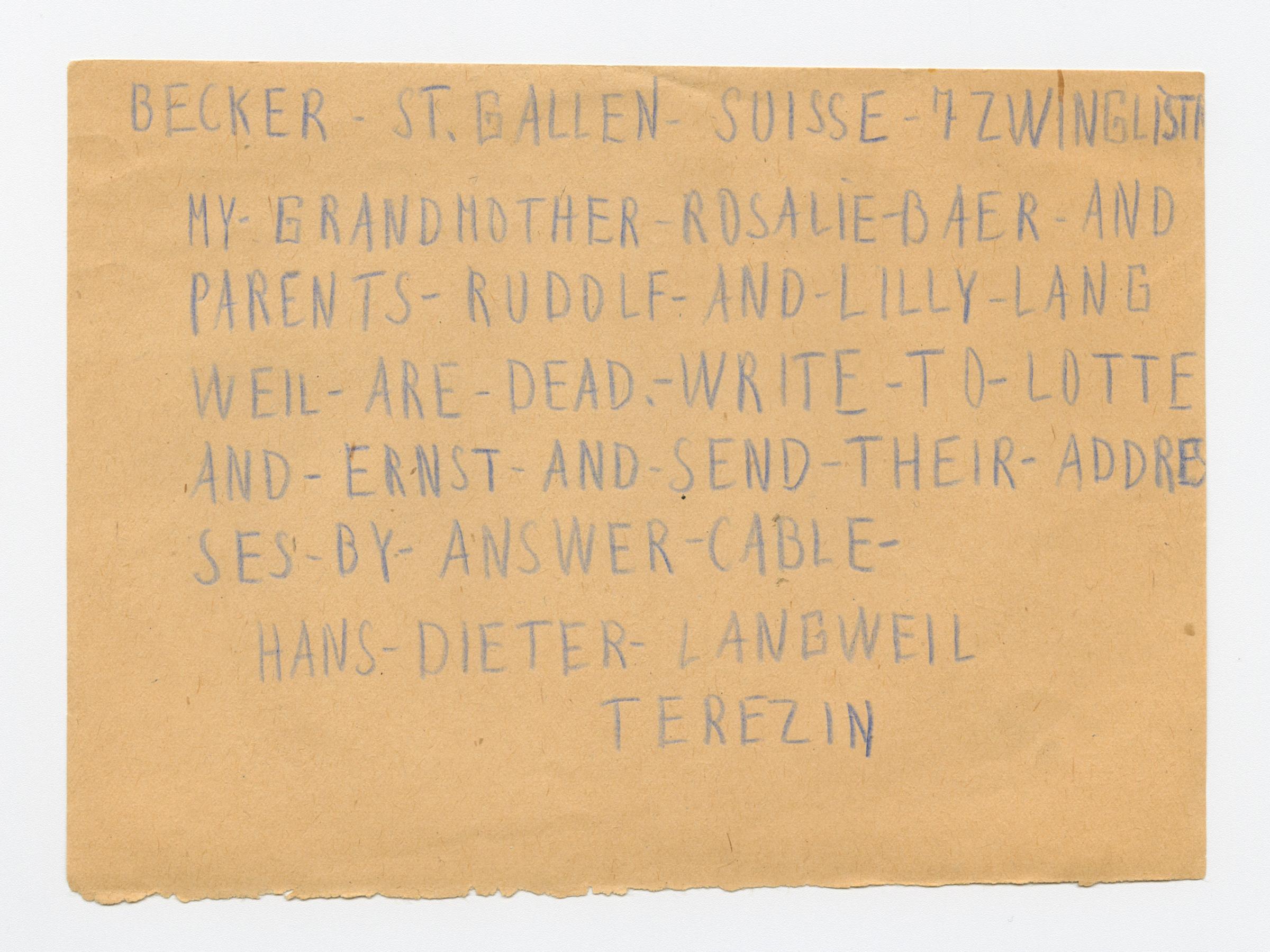
More Must-Reads from TIME
- Introducing the 2024 TIME100 Next
- The Reinvention of J.D. Vance
- How to Survive Election Season Without Losing Your Mind
- Welcome to the Golden Age of Scams
- Did the Pandemic Break Our Brains?
- The Many Lives of Jack Antonoff
- 33 True Crime Documentaries That Shaped the Genre
- Why Gut Health Issues Are More Common in Women
Write to Lily Rothman at lily.rothman@time.com